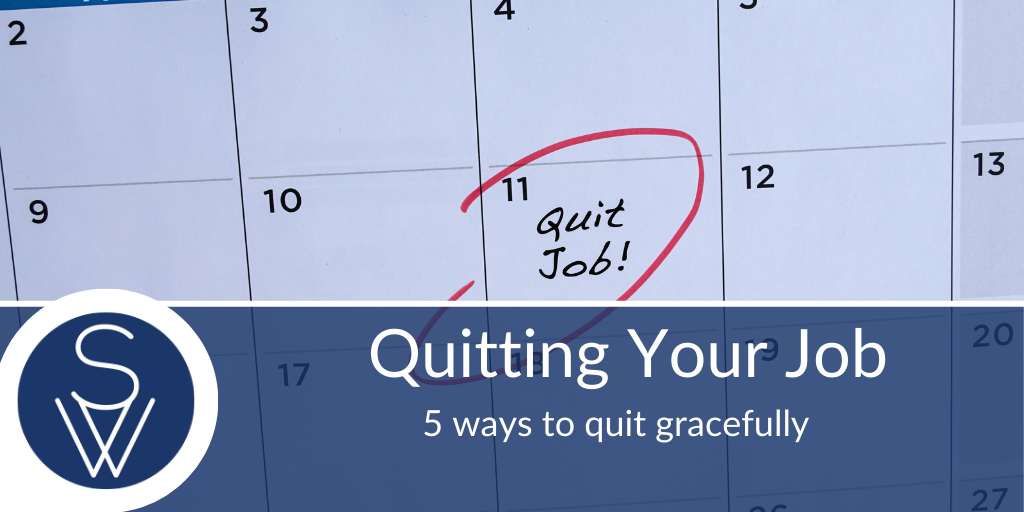
In a recent blog titled "Before you quit your job, read this!" we gave some advice on how to get your ducks in a row before leaving your current role, to set yourself up for success during the upcoming time of change. If you have now secured your next career move, it’s time to hand in your notice.
The way most people quit their job ranges from a spontaneous walk-out to agonizing over how to explain their decision to leave to their boss and colleagues. Some professionals become so anxious about quitting they decide not to accept an alternative job offer.
Even if you can’t wait to high tail it out of the door, there are professionally acceptable ways to resign and it’s always preferable not to burn any bridges. Quitting on bad terms may be detrimental to your immediate career prospects, no matter how poorly you feel you’ve been treated. At the other end of the spectrum, an exaggerated sense of loyalty to your employers is unrealistic. No one is indispensable. If you are offered your dream job, don’t hold back from accepting it out of some inappropriate sense of loyalty. If everything was perfect in your current role, you wouldn’t have considered an alternative.
Whatever your reason for quitting, follow these tips to do it in style.
Think about timing
What does your current employment contract state about your notice period? Typically employers require two weeks’ notice so stick to your contractual requirements rather than hanging around longer to help out. Once an employee has handed in their notice, they are often excluded from projects and soon ignored. You’ve quit, why would you be included when you will be around to see a project through to its conclusion?
Make it formal
Not all employment contracts require formal notice to quit. Our advice is to submit a written resignation letter to avoid confusion over your final day in the office. Keep it simple. Advise your boss that you are leaving your role and state your last day of employment with the company. If they want to find out why you are leaving, HR will schedule an exit interview. If that is the case, you aren’t obliged to reveal the reasons you are leaving and in some cases, it may not be appropriate, especially if your feelings towards your current employer are negative. Keep in mind that the same boss you criticize may be approached for a reference by your new company. For more advice, read our article on how to handle the exit interview.
Say thank you
The caveat here is only if you are sorry to leave. If you have genuinely enjoyed your time with your employer, say so. Write them a note, send a card, and offer them your new contact details. Perhaps some of them helped you to grow in your career. It’s the least you can do.
Keep it to yourself
It’s natural to want to announce your intention to quit to your co-workers before you meet with your boss. Our advice is – don’t. Your boss needs to hear it first, from you. It’s professional etiquette.
Respect company culture
How you announce your imminent departure to your colleagues will be partly influenced by company tradition. If it’s the norm to send out a general e-mail to those you work with on a daily basis then observe that procedure. If, however, your boss asks you to maintain silence for a specific period, you should respect that.
Quitting your job isn’t always straightforward. The golden rule is, to think about the impact the nature of your departure might have on your short or long-term career. Stay professional, be positive, and quit your job in style.
Want more tips on the topic of quitting your job? We've got you covered.








